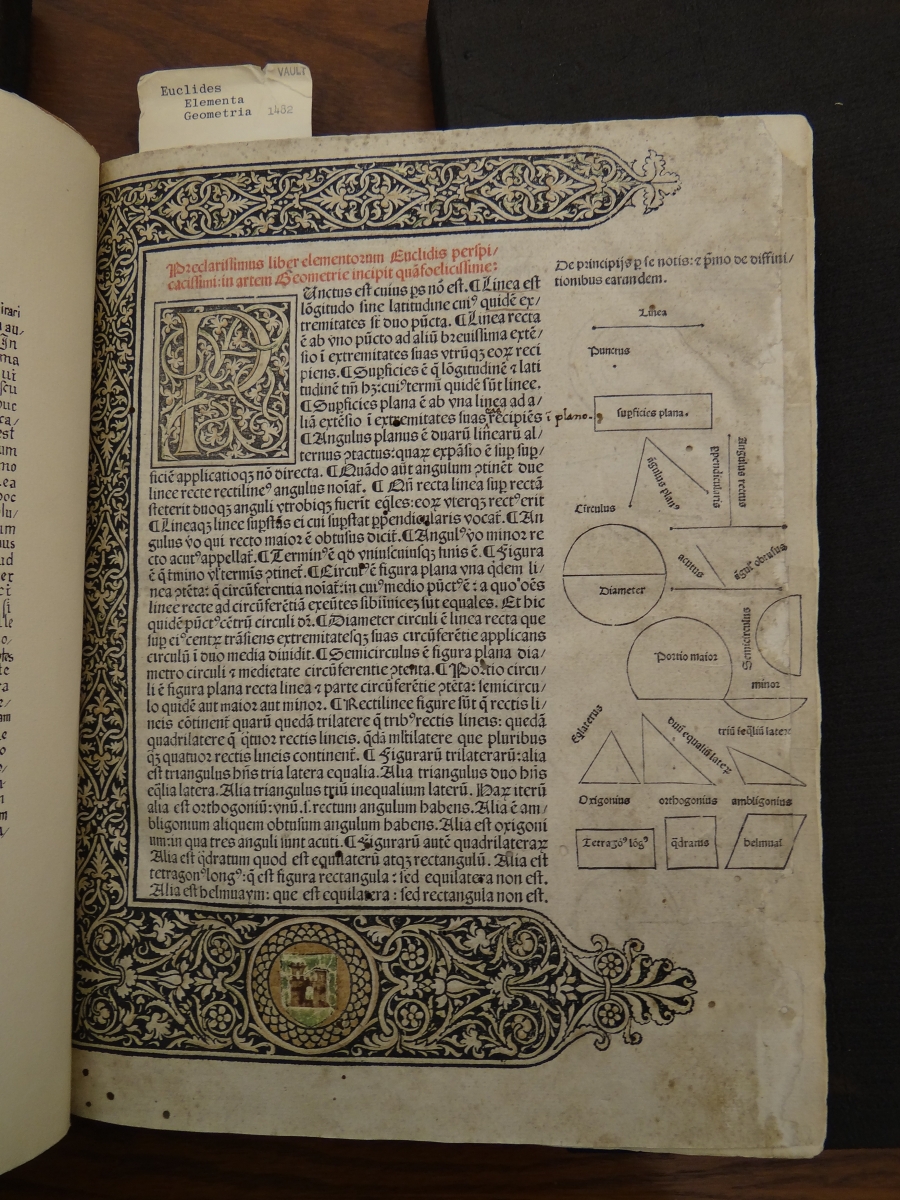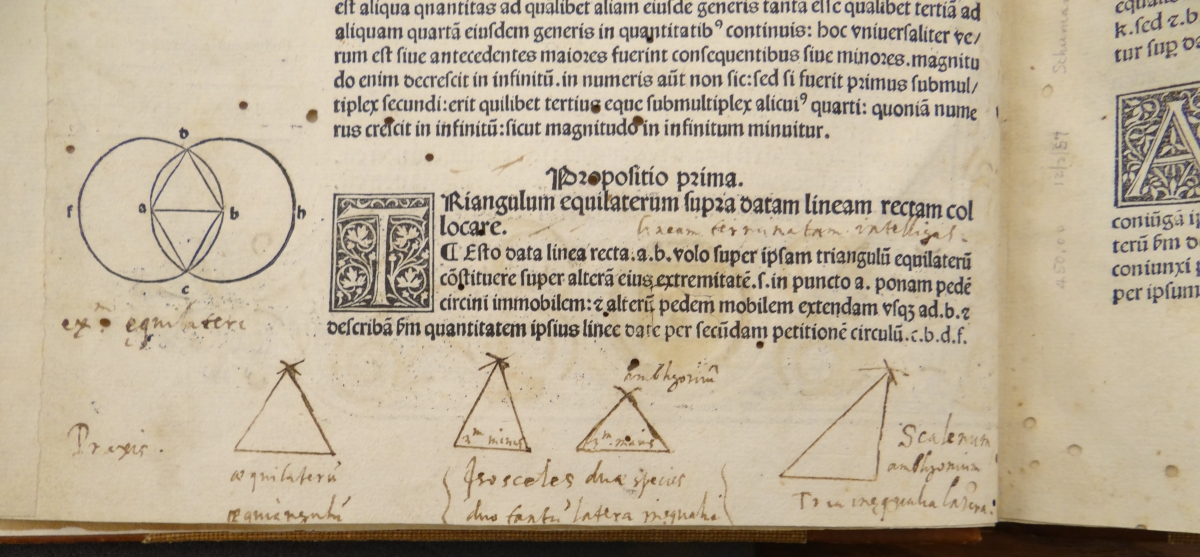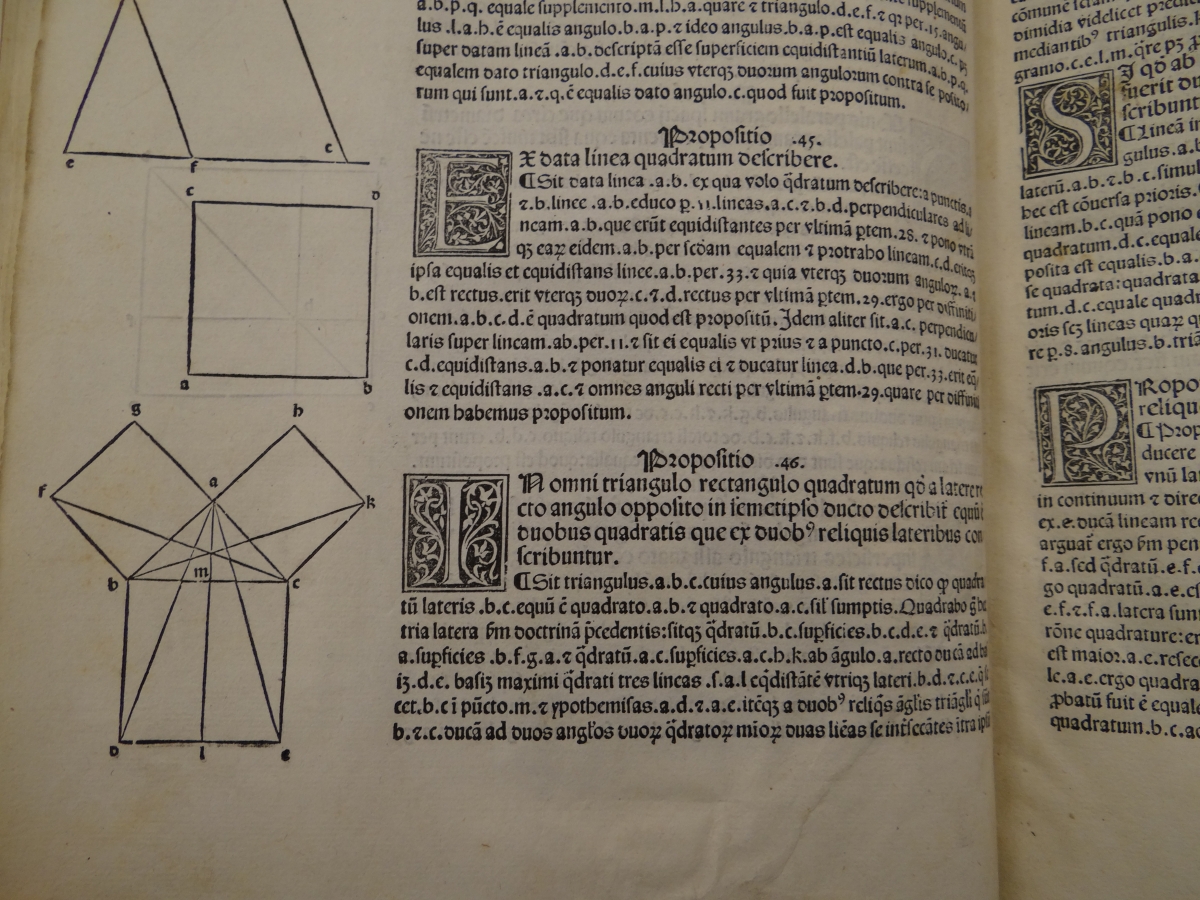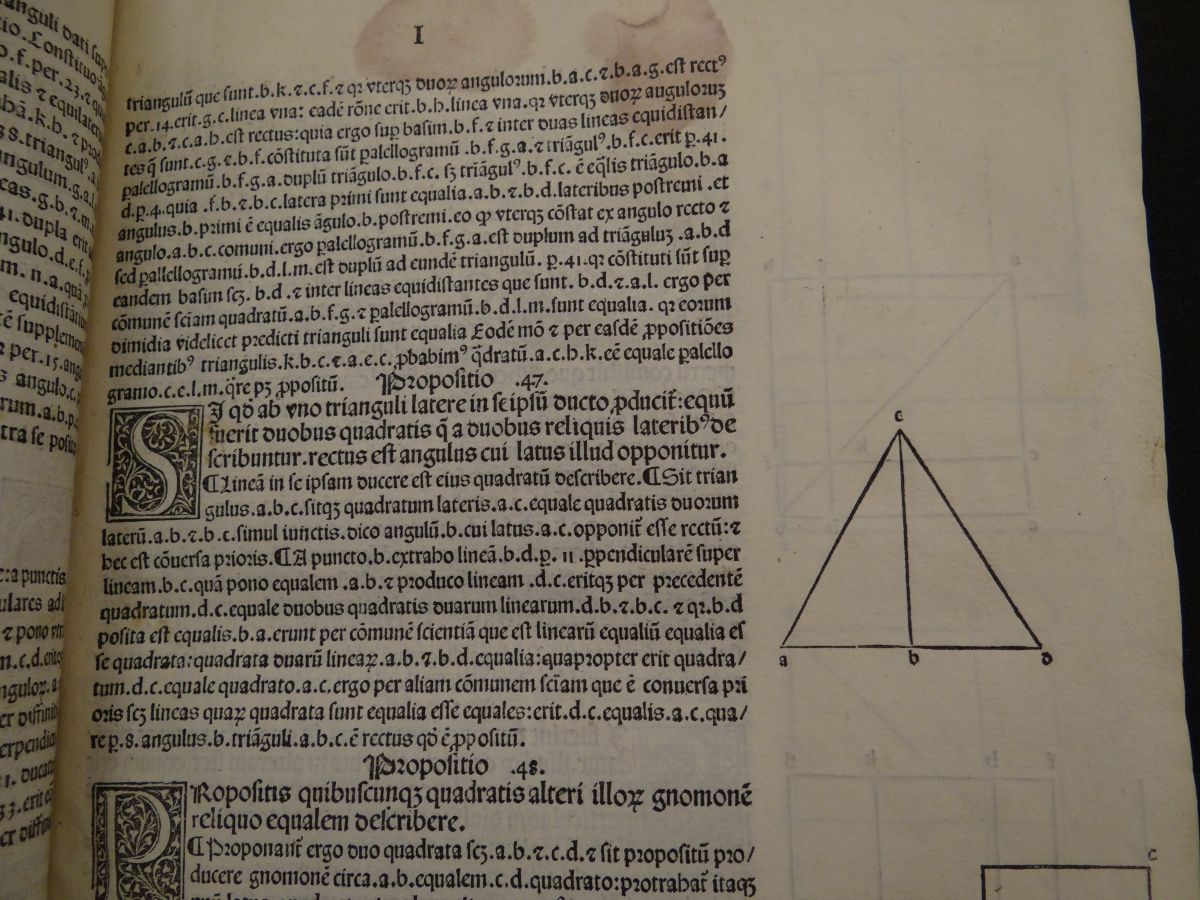- About MAA
- Membership
- MAA Publications
- Periodicals
- Blogs
- MAA Book Series
- MAA Press (an imprint of the AMS)
- MAA Notes
- MAA Reviews
- Mathematical Communication
- Information for Libraries
- Author Resources
- Advertise with MAA
- Meetings
- Competitions
- Programs
- Communities
- MAA Sections
- SIGMAA
- MAA Connect
- Students
- MAA Awards
- Awards Booklets
- Writing Awards
- Teaching Awards
- Service Awards
- Research Awards
- Lecture Awards
- Putnam Competition Individual and Team Winners
- D. E. Shaw Group AMC 8 Awards & Certificates
- Maryam Mirzakhani AMC 10 A Awards & Certificates
- Two Sigma AMC 10 B Awards & Certificates
- Jane Street AMC 12 A Awards & Certificates
- Akamai AMC 12 B Awards & Certificates
- High School Teachers
- News
You are here
Mathematical Treasure: Euclid’s Elementa Geometriae Printed by Ratdolt
This 1482 version (Linda Hall Library call number QA31.E8587 1482) was the first edition of Euclid’s Elements to be printed, and was actually one of the first printed mathematical texts. It is in Latin, published by Erhard Ratdolt on May 25, 1482, in Venice, based on Campanus’ translation of Euclid’s Elements from Arabic, and contains 15 books rather than 13. Based on the number of surviving copies in libraries, Ratdolt printed more than the typical average 15th-century run of 300 copies. The copy at the Linda Hall Library of Science, Engineering & Technology was once owned by George Sarton, who is considered the founder of the history of science as an academic discipline. It contains marginal notes in Latin and bookworm holes.
The Pythagorean Theorem is Proposition 46 instead of 47.
For more images of Euclid’s Elements, printed by Ratdolt in 1482, visit the page “Mathematical Treasures - Ratdolt's Euclid's Elements” by Frank J. Swetz in Convergence.
Images in this article were taken by the author at the Linda Hall Library of Science, Engineering & Technology and are used with permission. The Linda Hall Library makes available all existing digital images from its collection that are in the public domain to be used for any purpose under the terms of a Creative Commons License CC by 4.0. The Library’s preferred credit line for all use is: “Courtesy of The Linda Hall Library of Science, Engineering & Technology.”
References
O'Connor, J. J., and E. F. Robertson. “Campanus of Novara.” MacTutor History of Mathematics archive. https://mathshistory.st-andrews.ac.uk/Biographies/Campanus/.
Norman, Jeremy. “Euclid's Elements, the Most Famous Textbook Ever Published (May 25, 1482).” http://www.historyofinformation.com/expanded.php?id=382.
Swetz, Frank J. “Mathematical Treasure: Ratdolt's Euclid's Elements.” Convergence (August 2012), DOI:10.4169/loci003904. http://www.maa.org/press/periodicals/convergence/mathematical-treasure-ratdolts-euclids-elements.
“George Sarton.” Wikipedia. https://en.wikipedia.org/wiki/George_Sarton.
Cynthia J. Huffman (Pittsburg State University), "Mathematical Treasure: Euclid’s Elementa Geometriae Printed by Ratdolt," Convergence (January 2017)








